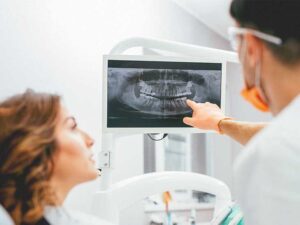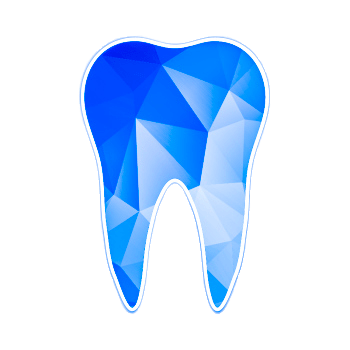Dental health has received a major revamp in recent years, with more techniques, medications, and procedures being invented and existing ones being improved. These are aimed at giving dentists and dental officers an easier time. Furthermore, it enables patients to have efficient treatment with the least hassle. One of the greatest inventions might as well be dental X-rays. Kenyans across all walks of life can now enjoy this treatment. The Nairobi Sterling Dental Clinic offers Dental X-rays services to help with dental treatments of all kinds.
Have you ever walked into your dentist’s office and explained what your problem is, but you are just unable to get into the exact details? Sometimes, you might know where the problem is but you just can’t tell what exactly ails you. The dentist, no matter how trained and proficient they are at their work, might also get it wrong sometimes. They might need a better way to confirm their diagnosis. Sometimes, they might need extra imagery to see and analyze the defect and come up with a viable explanation. This goes a long way in helping them come up with a diagnosis and offer the proper treatment. Your dentist can only do this through the help of a dental X-ray.
Dental X-rays (radiographs) are images of your teeth that your dentist uses to evaluate your oral health. These X-rays are used with low levels of radiation to capture images of the interior of your teeth and gums. This can help your dentist to identify problems, like cavities, tooth decay, and impacted teeth. Moreover, they can also be used to identify bone loss in the jaw, abscesses, cysts, and other forms of tumours. Dental X-rays are also used to check on the condition and position of teeth. This is important in preparation for other dental procedures such as dentures, implants, and braces. Paediatric dentists also use Dental X-rays to check if teeth in children are impacted and examine the development of wisdom teeth.

There are several types of dental X-rays. They are categorized as being either intraoral or extraoral. Intraoral X-rays are done to check for defects inside the mouth. On the other hand, extraoral X-rays are performed to detect defects in the jaw and skull. Each of these X-rays is performed for a particular purpose. Consulting with our dentists gives them an edge on the condition you might be having, They will hence, be able to give you guidelines on the most appropriate X-ray to take.
Intraoral X-rays include:
Bitewing X-rays- show details of the upper and lower teeth in one mouth area. Each bitewing shows a tooth from its crown (the exposed surface) to the level of the supporting bone. Bitewing X-rays detect decay between teeth and changes in the thickness of bone caused by gum disease. They can also be used to examine the proper fit of a crown or other restoration such as bridges.
Periapical X-rays- They show the whole tooth, from the crown, to beyond the root where the tooth attaches to the jaw. Each periapical X-ray shows all teeth in one portion of either the upper or lower jaw. Periapical X-rays detect any unusual changes in the root and surrounding bone structures.
Occlusal X-rays- They capture all the teeth in one shot. These x-rays are done when your jaw is closed to see how your upper and bottom teeth line up. They can also detect anatomical abnormalities with the floor of the mouth or the palate.
Extraoral X-rays include:
Panoramic X-rays- They show the entire mouth area in one single X-ray. This includes all the teeth in both the upper and lower jaws. This X-ray detects the position of fully emerged as well as emerging teeth. It can help see impacted teeth and helps diagnose tumours.
Tomograms-They shows a particular layer or “slice” of the mouth and blur out other layers. This X-ray examines structures that are difficult to see because other nearby structures are blocking the view
Sialograms– These involve the use of a dye, which is injected into the salivary glands so they can be seen on X-ray f. Dentists might order this test to look for salivary gland problems, such as blockages, or Sjogren’s syndrome.
Cephalometric projections– They show an entire side of the head. This X-ray looks at the teeth in relation to the jaw and profile of the individual. Dentists use this X-ray to develop each patient’s specific teeth realignment approach.
Dental X-rays use radiation to penetrate the skin and produce images. These images help the dentist identify defects or come up with a diagnosis. Overexposure to radiation may pose some health hazards, later on in life. Our dentists recommend as little exposure as possible. The frequency of having dental X-rays depends on your medical and dental history as well as your current situation. In most cases, dental X-rays are taken at least 1 year apart. In some patients, however, dental X-rays may be needed more frequently. The dentists request them for at least as often as 6 months.
Nairobi sterling dental clinic has invested in digital dental X-rays. These offer a much better experience and ease of use than traditional X-rays. They produce better-quality images and are faster. Moreover, they also have less radiation exposure and are hence safer to use. They can also reproduce these images several times. They also allow one to zoom in and view the details of the images better and more clearly. Digital Dental X-rays are also more comfortable as compared to traditional X-rays.
Visiting our dentists, we can only hope that we get the best dental experience we can afford. There is nothing easy about visiting the dentist, knowing very well they might have to use their medical tools on you. This experience can be made easier by using dental X-rays. X-rays help dentists know the exact diagnosis and the position of the problem. This also helps them choose the best cause of action. Nairobi Sterling Dental Clinic has the best dentists in the country. They are not only learned individuals but also qualified and certified professionals, whose only goal is to give you the best time at the dentist’s clinic. Visit us today at the Park Suite Building in Parklands, and have that dental X-ray examination today. Feel free to also contact us to make inquiries, or book an appointment with our specialists.

